Social media SEO should be part of any ambitious marketer’s repertoire, but today, we’re diving into Facebook-specific tactics. That’s right — we’re cracking open the secret recipe to Facebook SEO!
In this guide, we’ll walk you through the ins and outs of Facebook SEO and give you a dozen tips you can implement today to better your reach.
Bonus: Download a free social SEO checklist and follow pro tips for Facebook, Instagram, TikTok, YouTube, Twitter, and LinkedIn to get your posts seen by more people.
What is Facebook SEO?
Facebook SEO is the practice of optimizing your Facebook content to increase your reach, discoverability, and visibility on the platform.
Social SEO is a relatively new practice, but it’s grounded in the same principles as more traditional SEO, which is the process of getting your site to rank higher on search engine results pages (SERPs).
Facebook search engine optimization is essentially the same idea but within the walls of Facebook. In both cases, it’s all about working with the algorithm to make sure your content rises to the top.
If your Facebook page is a mini-website, picture Facebook’s feed as the SERP.
Why does Facebook SEO matter?
There are plenty of reasons why Facebook SEO should be a priority.
If you want to increase your reach on the platform (and who doesn’t?), Facebook SEO can help you expand your fan base and build relationships with followers.
But it’s not just about visibility on one platform — when executed well, Facebook SEO may also help your brand climb other SERPs.
Social media profiles are often the top rankings in SERPs. A page that ranks well within Facebook can also rank well outside of Facebook and help your visibility on places like Google. And lordy lordy, who doesn’t want to be the top dog on Google?
As anyone who pays tribute to Google’s appetite for SEO-rich content knows, every little bit helps. The higher any part of your brand is on the SERP, the better off your website traffic is. The better your website traffic is, the more quality leads make it to your website, and the higher your conversion rates climb.
You get more downloads, collect more information, make more money, and live a happier life (probably)!
So, why does Facebook SEO matter? Well, because it’s part of a well-rounded digital marketing diet, kids.
12 Facebook SEO tactics to optimize your Page
When it comes to Facebook SEO, you need to be strategic. You can’t just publish content and set up your profile all willy-nilly. That’s a recipe for a flop.
Instead, consider these Facebook SEO tactics your secret weapon to climb the feed!
Tip 1: Your name matters
Names are important. Anyone who was made fun of in elementary school can tell you that (coming from a Smallween, I mean, Colleen herself).
When you choose your Facebook Page’s name (which may be obvious), you must communicate who you are. If it doesn’t feel too spammy, add in what you do after.
Search engines and social platforms love relevant keywords, so if you can fit one into your Facebook Page name that also answers what you do, then you’re laughin’.
Antisocial Skateboard Shop is an example of a good SEO and Facebook Page name kebab. It says who the brand is (Antisocial) and what they do (Skateboard Shop), which happens to be a main keyword.
Source: Antisocial Skateboard Shop on Facebook
It’s also perfectly acceptable to just have your business name as your Facebook Page name.
Flower Beds Farm, for example, would read very awkwardly if they were to include keywords after their Page name. Flower Beds Farm, Vancouver Island Tourist Hotspot, sounds… wrong.
Source: Flower Beds Farm on Facebook
When in doubt, go with what reads naturally.
SEO is designed to best serve human beings with the pages they are searching for, so you should always aim to sound natural. Write for people, not the machine, and the machine will reward you.
Tip 2: Grab that vanity URL
When you first create your Facebook Page, you will be assigned a generic URL. Antisocial Skateboard Shop, for example, hasn’t changed theirs yet, so it looks like so:
Source: Antisocial Skateboard Shop on Facebook
(Antisocial Skateboard Shop: If you’re reading this, change your generic address to a vanity URL!)
Be sure to change that default string of nonsense into a vanity URL. Vanity URLs are customized web addresses; like vanity plates, you get to decide what yours says.
To create your custom Page URL, you simply have to change your Facebook username, which is under your About tab > Create Page Username. Use something short, branded, and attach a keyword.
In the example below, the popular news and media website NowThis has a vanity URL of facebook.com/NowThisNews. Clearly, they include their brand name and main keyword.
Source: NowThis on Facebook
Tip 3: Have an on-point About section
The About section is one of the first things your Page visitors will read. As Simon Sinek says, be sure to start with your ‘Why.’ His Ted Talk on the Golden Circle should give you an idea of what this could be for your brand.
You might be thinking, why include branding advice in an SEO tactic list? It’s science, really: you want users to smash that follow button so Facebook thinks you’re the most popular kid at the party.
And the best way to get buy-in? Make sure your branding speaks to your audience on an emotional level.
You will also want to sprinkle some relevant keywords throughout this section, much like Hootsuite does in the following tip. Way to be ahead of the curve, Hootsuite; it’s almost like you hire super talented, totally competent, and good-looking writers (cough cough).
Tip 4: Incorporate keywords throughout your Page
Your About section, description, headline, photo captions, notes, and even updates are all areas for potential keyword plugs.
We’ve said it before, and we’ll say it again: Keywords are the cornerstone of your SEO strategy. You want to use your keywords at least once throughout your Facebook Page.
Just don’t keyword stuff. If you go overboard, you’ll get dinged. Remember, you’re writing for human beings, so be natural.
Look at this Page (chosen totally at random!) for an example of how to integrate keywords naturally. Pay attention to the About section (Social media tools! Build brands!) and the photo caption (chatbot!).
Source: Hootsuite on Facebook
If you’re not sure where to start your keyword research, keep an eye on what your audience is searching for and talking about using brand monitoring tools. You can also use SEO tools like SEMRush or Google’s keyword planner to create a list of keywords to keep an eye on.
Demand changes over time, so revisit and update your target keywords regularly. That way, you’ll always be abreast of keyword fluctuations that pertain to your business.
Tip 5: Earn those backlinks
Backlinks are like a vote of confidence — they give your Page credibility. Google will view you as an industry authority if you can get other reputable sites to link to your Page or your content. Don’t forget to link to your website in the About section of your Facebook Page!
You can build a backlink network by collaborating with influencers and other strategic partners.
But the best way to earn quality backlinks is pretty simple. Produce high-quality content matching user needs, and those links should start rolling in.
Actually, speaking of high-quality content…
Tip 6: Publish keyword-rich content
Okay, do you want the good news or the bad news first?
The bad news is that you must consistently and repeatedly publish keyword-rich content. You can’t just push out one or two posts per month and expect groundbreaking results. It’s consistent, quality content that will really help with your SEO.
The good news is that Hootsuite can help in so many ways.
- If you’re unsure where to start, try the 2023 guide to social media content creation.
- If you’ve got the basics down but want to really blow your followers out of the water, this guide on engaging and effective content will help.
- If you’ve hit a creative block, these 17 fresh content ideas are coming in hot.
Once you’ve got your content sorted and ideas for keyword-rich captions, be sure to schedule your posts in bulk with Hootsuite (the ultimate time-saver).
Tip 7: Engage with your followers
Social media is built for communication. If your followers leave a comment, respond! Open up a dialogue and have a chat.
The Facebook algorithm judges content (in part) based on engagement levels. So if your followers offer you the chance to increase engagement, take it.
Tip 8: Double-check your contact information
Make sure to list your business address, phone number, and business hours on your Facebook Page.
Even if you’re a purely online, don’t-call-me, 3 AM to 4:30 AM ecommerce brand, you’ll want to include something here. Facebook indexes for local search based on this information.
If you have a physical address, you can also allow users to check in, creating more visibility for your business. This can also serve to increase social trust in your brand.
If you see a friend checking into a business, maybe you’ll check it out yourself.
Tip 9: Moderate your reviews
Don’t get bummed out if you get a bad review. Bad reviews are a part of life! And not only that, but they offer you an opportunity to provide top-tier customer service.
You’ll likely gain a loyal customer if you can turn a bad experience into a great one. You can even ask them to reconsider the review they left. A negative review is just a positive review waiting to happen!
Your first step is to respond to the reviewer, apologize, and offer to make it right. Then, once you’ve resolved or diffused the situation, you can ask them to reconsider their rating.
Brands with five stars are more likely to be interacted with on Facebook, improving your SEO.
Tip 10: Post at the right time
Figuring out the best time to post on Facebook will inherently raise your engagement rates, better serve content to your audience, and please the algorithm Gods. All of this, of course, works to better your SEO.
Hootsuite’s content publisher will suggest optimal times for you to post. Or, for those go-getters, you can do your own research by following this red-hot advice on the best times to post on Facebook.
Tip 11: Get smart about alt text
Alt text: We love to see it. Adding alt text to your Facebook photos helps the platform understand and index your content. As a result, it shows up more in search results.
Even without the SEO benefits, creating accessible content is just good practice. It also allows those in your audience with visual impairments to enjoy your content.
Besides being the right thing to do, this effectively expands your audience to include those with visual impairments or other disabilities.
Tip 12: Create location-specific content
Do you have more than one location? Your SEO strategy may benefit from multiple location Pages. This will let you capitalize on the benefits of localized marketing.
For example, say you have donut shops in Vancouver, Seattle, and Oregon. You could potentially rank for region-specific keywords for each place, but only if you have separate Pages dedicated to targeting those regions’ keywords.
Frequently asked questions about Facebook SEO
Still curious? Here are some answers to your most frequently asked questions.
What does SEO mean on Facebook?
Facebook search engine optimization is the strategy of increasing your Page’s visibility, reach or ranking on Feeds. SEO for Facebook is very similar to SEO on other platforms.
How do I SEO my Facebook Business Page?
You can SEO Facebook Pages by implementing the 12 Facebook SEO tactics above! The sooner you start, the better off you’ll be.
Can you do SEO for other social media platforms?
Absolutely. Hootsuite has guides to help you learn Instagram SEO, TikTok SEO, and Pinterest SEO.
Manage your Facebook presence alongside your other social media channels using Hootsuite. Schedule posts, share video, engage your audience, and measure the impact of your efforts — all from a single dashboard. Try it free today.
Do it better with Hootsuite, the all-in-one social media tool. Stay on top of things, grow, and beat the competition.
The post Facebook SEO: 12 Tactics for Better Reach in 2023 appeared first on Social Media Marketing & Management Dashboard.

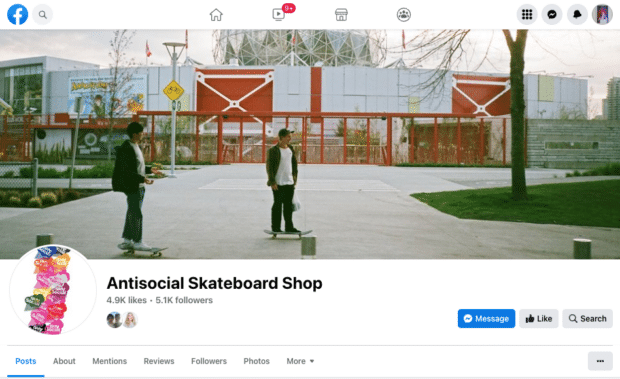
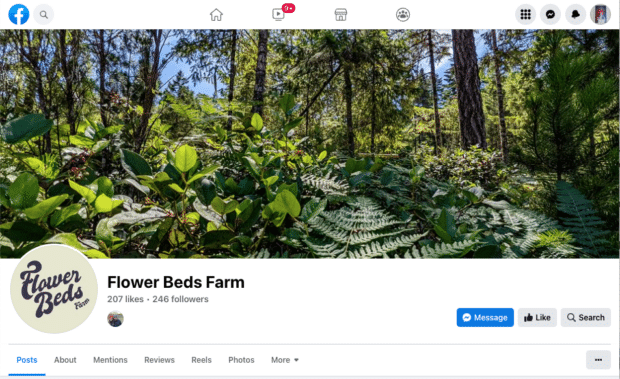
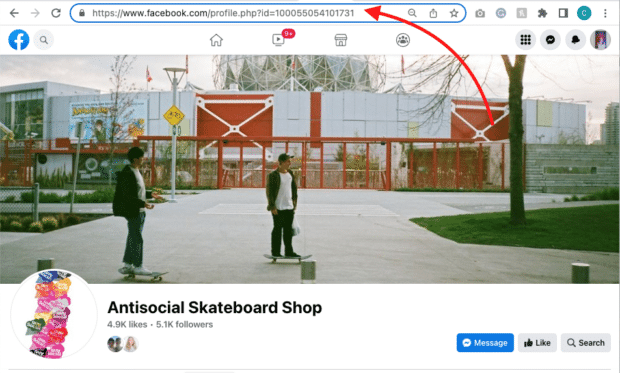
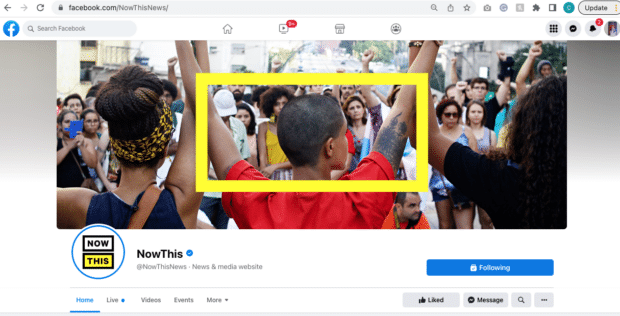
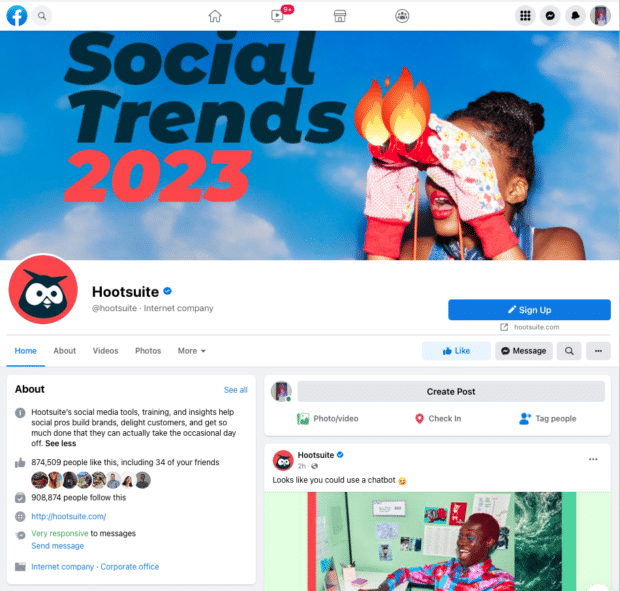




Recent Comments